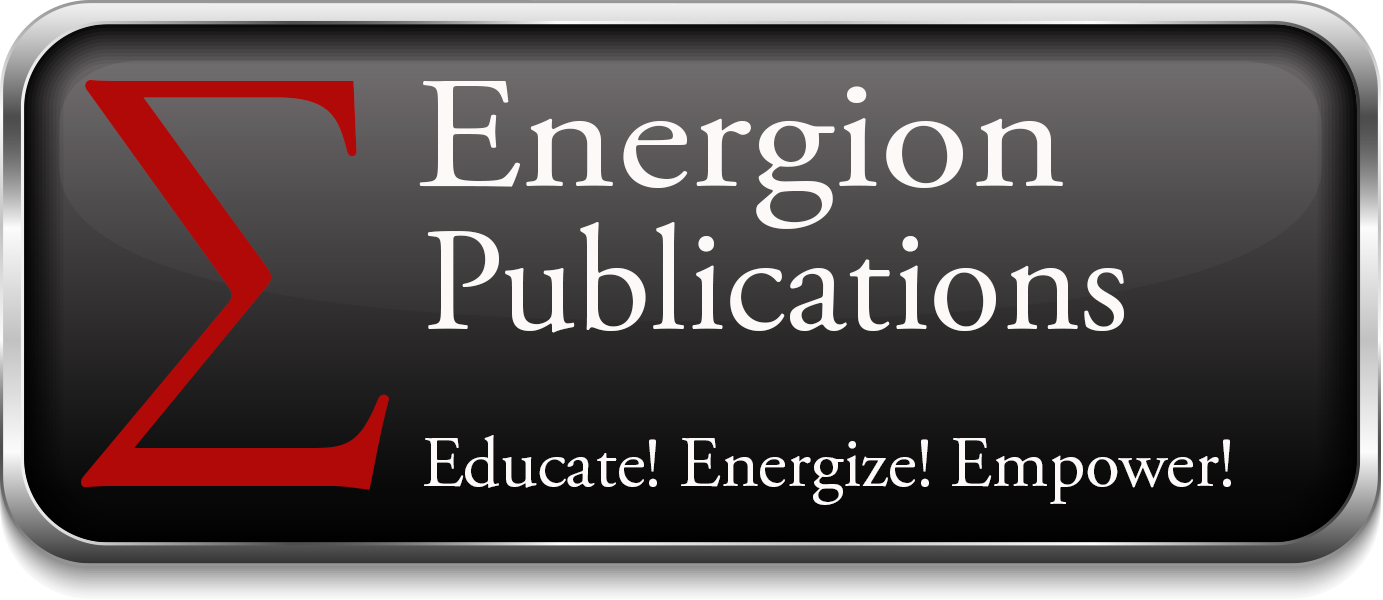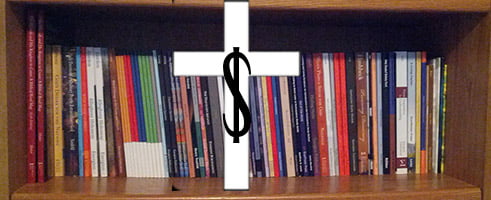The Energion Mission Triangle

In my video Why Energion? I draw a triangle on the white board to illustrate the boundaries of our publishing mission here at Energion Publications. I labeled the points of that triangle “Evangelical,” “Liberal,” and “Charismatic.” Now there are many ways one could divide Christianity into streams, but those three represented groups I was, and am, personally involved in bringing into more communication.
In my illustration, the points on the triangle represent forces pulling away from the center, and potentially becoming unbalanced. There is a value, I believe, in these forces hearing from one another and being accountable to one another. I don’t wish to see them driven toward compromise and homogenization. In fact, I view their very differences as valuable to the church as a whole. I do not see myself sitting comfortably in the center. I definitely lean toward the liberal and charismatic element, though on particular issues I also lean toward evangelical. I feel the need of accountability to those who may see things differently.
Looking back to the company mission (which I regard as both a business and a ministry), there are two elements that set the outer boundaries. The first is simply conversation. When I look at a proposal or a manuscript, I ask not just where it is in the theological spectrum, but whether it is in conversation with other movements. Again, “conversation” does not mean “homogenization.”
 For example, I published my own book When People Speak for God, which is probably the best illustration of what I mean by simultaneously leaning liberal and charismatic. In it I argue for the continuation of the gifts of the Spirit, and at the same time connect the inspiration of scripture with the prophetic gift at any time or place. I would be delighted to get a similar book from a more evangelical perspective that would challenge those suppositions. Such a book shouldn’t say nice things about me or my thesis, but should respond to my claims, or more importantly claims of liberal and charismatic theologians on the topic.
For example, I published my own book When People Speak for God, which is probably the best illustration of what I mean by simultaneously leaning liberal and charismatic. In it I argue for the continuation of the gifts of the Spirit, and at the same time connect the inspiration of scripture with the prophetic gift at any time or place. I would be delighted to get a similar book from a more evangelical perspective that would challenge those suppositions. Such a book shouldn’t say nice things about me or my thesis, but should respond to my claims, or more importantly claims of liberal and charismatic theologians on the topic.
As another example, I just released the second edition of Dr. David Alan Black’s book Why Four Gospels? I dare say I will not be challenged in referring to that book as conservative. I’d be delighted to get a similar book that is both comprehensive and compact (a tough order!) from a more liberal perspective. While such a book  shouldn’t personally attack Dr. Black by calling him a reactionary or some such thing, it should respond on point to his arguments. That would be conversation. If the conversation forces each person to recheck sources and ideas, even if their minds are not changed, then it’s the type of conversation I’m seeking to promote.
shouldn’t personally attack Dr. Black by calling him a reactionary or some such thing, it should respond on point to his arguments. That would be conversation. If the conversation forces each person to recheck sources and ideas, even if their minds are not changed, then it’s the type of conversation I’m seeking to promote.
The second set of boundaries are simply those of general Christian orthodoxy. Now orthodoxy can be a slippery term these days, but the short definition I like is that persons are orthodox if they can say the Apostle’s Creed without crossing their fingers. I have a more modern statement, taken from one of our Energion authors, Elgin Husbheck, Jr. In defining the Christianity he intends to defend in his book Christianity and Secularism, p. 77, he cites four points:
The nature of God is best represented by the doctrine of the Trinity: that there is only one God but within the one God exists three persons, the Father, the Son, and the Holy Spirit.
- Jesus Christ is the only Son of God, who died on the cross for our sins, and he rose again bodily in victory over death.
- Man is a sinner in need of salvation, which is made possible by the death of Jesus, and can only be gained by grace through faith.
- The Bible is the inspired word of God.
Those with theological training will doubtless realize how much of this might depend on definitions, but that is the nature of brief statements–the definitions are missing. Nonetheless, this again provides our outline.
To bring these ideas together, my aim is for the broadest possible conversation possible amongst generally orthodox Christians, aiming to hold us accountable for our fidelity to our sources of belief, and at the same time sharpening one another as iron sharpens iron (Proverbs 27:17).
I want to add one thing here. I am not trying to judge the orthodoxy of authors. I’m only evaluating books. An author may have written something that falls outside these boundaries. He or she may write something else regularly on a blog. I’m only concerned with the manuscript I’m publishing at the time.

